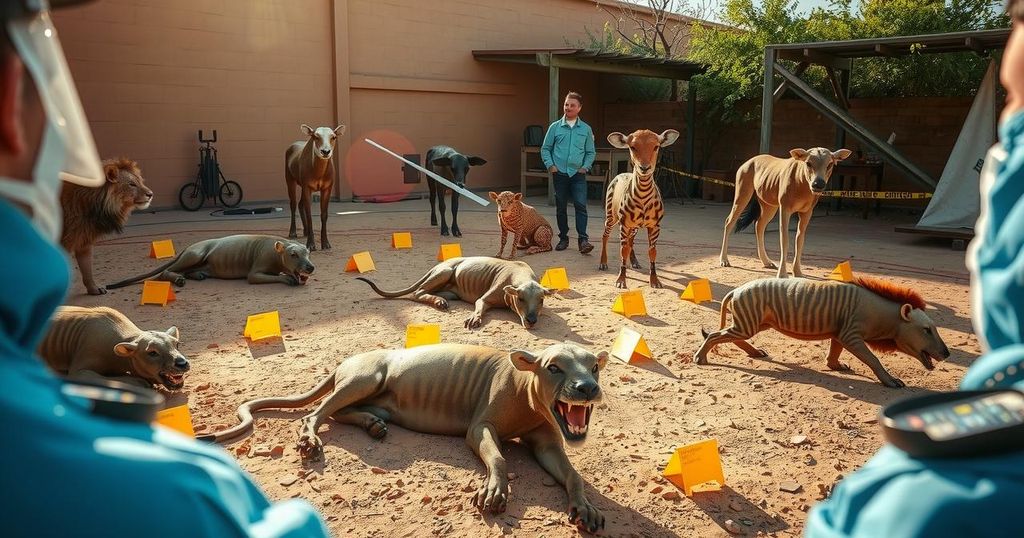Wildlife Forensic Academy: A Crucial Weapon Against Poaching in South Africa
The Wildlife Forensic Academy trains rangers and law enforcement in crime scene investigation to combat poaching, which has decimated rhino populations in South Africa with over 10,000 losses since 2007. Despite the training provided, prosecution rates for wildlife crimes remain distressingly low, with experts emphasizing the need for resource improvements and public awareness to protect lesser-known endangered species.
The Wildlife Forensic Academy in South Africa trains rangers, law enforcement, and conservation officers to tackle poaching through forensic investigation skills. This initiative is vital as South Africa has faced a significant poaching crisis, losing over 10,000 rhinos since 2007, with only a scant number of prosecutions following these crimes. The academy’s simulated training environment includes taxidermied animals sprawled as they would at a crime scene, providing an impactful learning experience for the students.
Phil Snijman, a former prosecutor and trainer at the academy, emphasizes the importance of first responders in securing crime scenes to preserve evidence. He highlights that inadequate training may result in the loss of critical evidence. Despite the training, actual prosecution of wildlife crimes remains rare, illustrated by the distressing statistic that only 36 poaching cases were convicted in 2023.
Wendy Willson, a conservationist, points out the often-overlooked plight of smaller species facing extinction, asserting that wildlife crime rarely reaches court, resulting in lenient sentences when they do. She stresses the importance of addressing the broader challenges of prosecuting these crimes, such as resource limitations and community support.
At the academy, Mari-Su de Villiers prepares to collect evidence, learning the intricacies of forensics to better protect endangered species like the African wild dog. Since its establishment in 2022, the academy has trained 500 individuals, though only a small fraction are from local backgrounds. The academy receives financial support from European student fees, helping sponsor local rangers’ training.
Improving the collection and preservation of evidence is crucial to securing more convictions and deterring future crimes. Snijman concludes that while the academy’s existence speaks to a pressing issue, it represents only a fraction of a larger solution needed to combat wildlife crime effectively.
In summary, the Wildlife Forensic Academy plays a critical role in enhancing the investigative skills of individuals tasked with combatting wildlife poaching in South Africa. With alarming statistics on poaching and low conviction rates, the academy’s focus on training highlights the urgent need for effective crime scene investigation. Improved evidence collection could lead to higher prosecution rates, although broader challenges remain for wildlife protection efforts.
Original Source: www.times-georgian.com




Post Comment